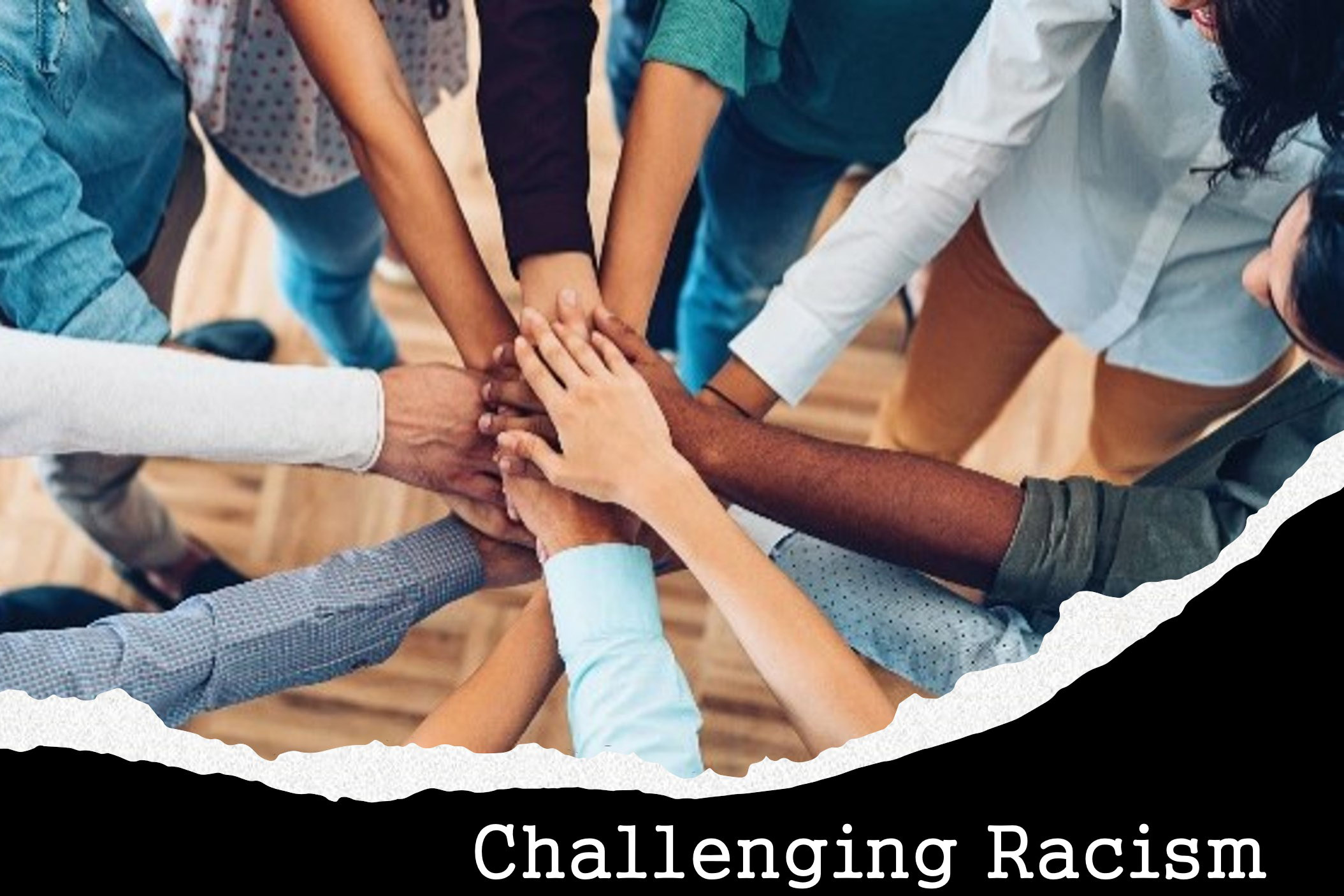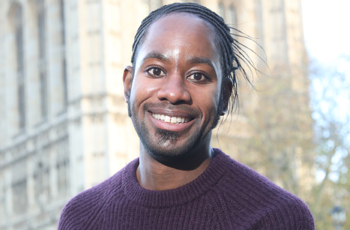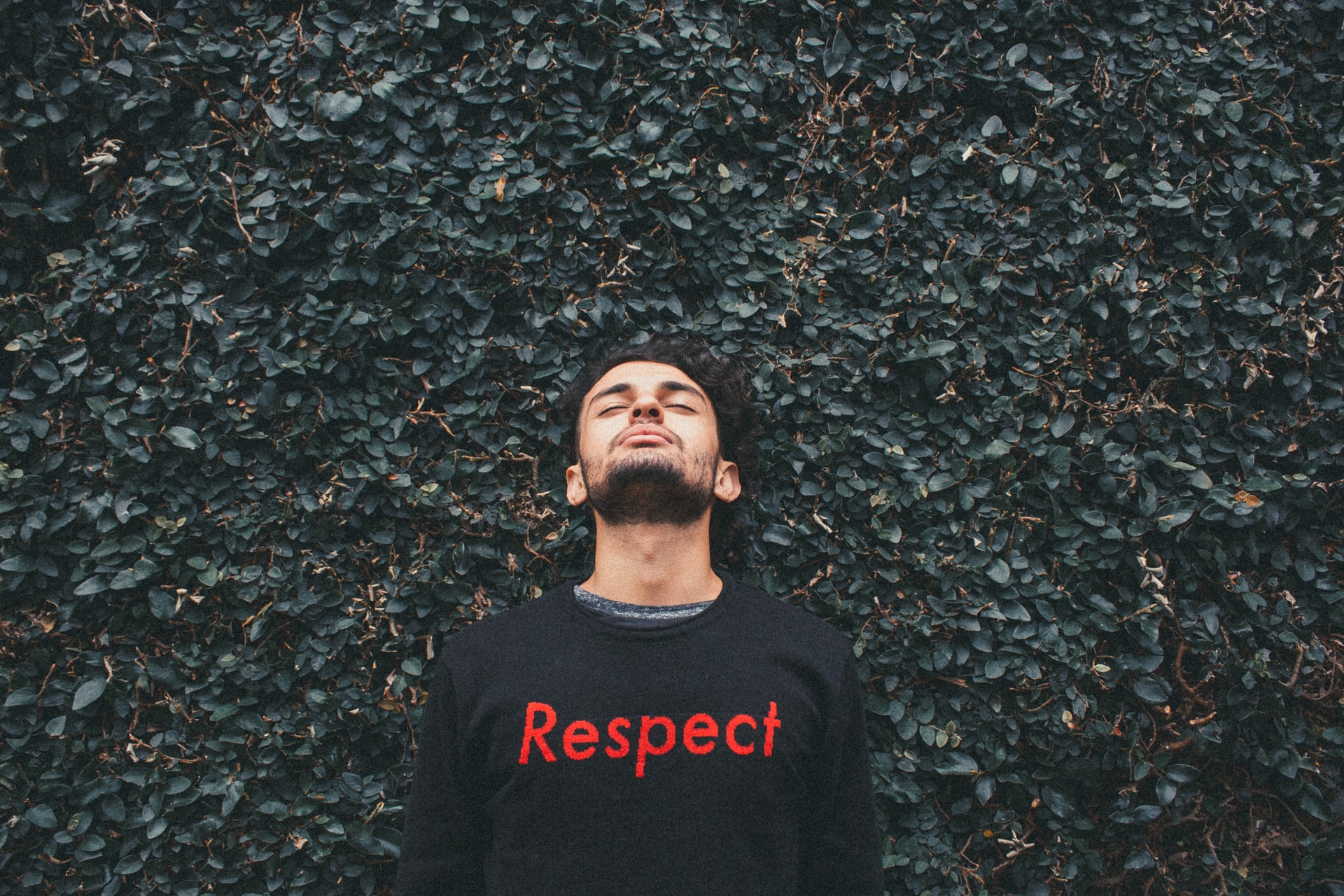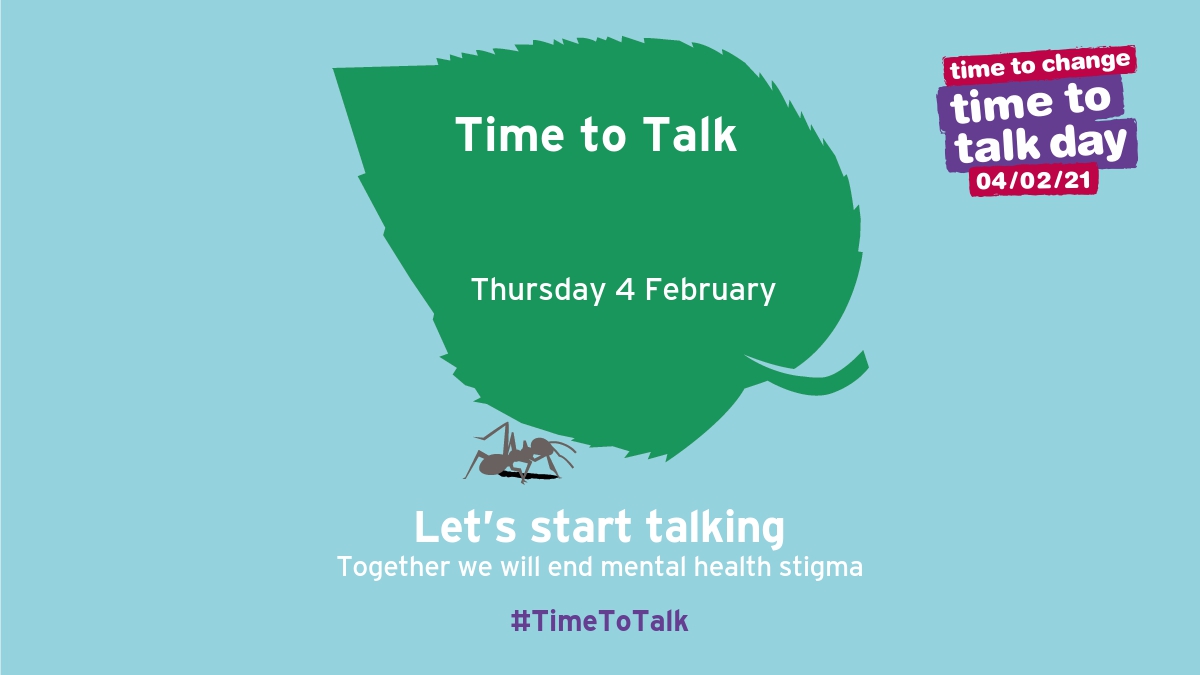This two-parter blog series follows conversations held with staff members at the University of Kent during South Asian Heritage Month 2023.
In this article, we hear Student EDI Officer Becky Lamyman’s thoughts on identity, heritage, and belonging. As part of the University’s South Asian Heritage Week in 2022, Becky wrote the article White British or Mixed Race?.
B – Becky Lamyman, Student EDI Officer and Interviewee
Z – Zoe Grasby, EDI Office Assistant and Interviewer
Z: How are you really doing this summer break?
B: There’s not enough hours in a day to get everything done, especially when you are juggling childcare, work, summer holidays. I think a lot of people who do not work in Higher Education (HE) get the impression that we have the whole summer off like schools do and that we close. And the reality is that is not the case. You are trying to get work done while people around the university are on annual leave, on summer holidays, et cetera. Everything just slows.
I’m slightly panicking about how little of the summer is left, but then I remember that the students are not back until late September. So, there is a bit more time than I sometimes think there is. But yes, there is too much to get done.
Z: Tell me about your current role at the University. What do you get up to and what do you enjoy the most?
B: I am the Student EDI (Equality, Diversity and Inclusivity) Officer at the university, and I have been here for 11 years now. I love the job and I love the unpredictability of it and the fact that it is so varied. There is a rough structure to my year, because you know that October is always Black History Month, February is always LGBT History Month, there’s always Worldfest in March and things like that. But what we do on a day-to-day basis can change up so much.
I have a lot of meetings with people around the university. I always describe my role as an octopus because it has these tentacles that reach out across the entire university and gets into everybody’s business – hopefully in a nice way!
I have always said that my goal for my role is that the university will turn around and say, “sorry, you do not have a job anymore. You have worked yourself out of one because everything is brilliant!”. It is never going to happen. I am very realistic about that fact. There is always something else to do.
Z: When did you realise you wanted to work in Equality, Diversity, and Inclusivity (EDI)?
B: Until I got the job, I did not know this role – this type of work – existed. I had always done a bit of EDI work. I was the Education Sabbatical Officer for Kent Union. I have worked with students my entire career, apart from a very brief stint in Social Services for 10 months. While I was General Manager of CCCU (Canterbury Christ Church University) Student Union, I did an awful lot of EDI work, it just was not under the EDI banner. I was introducing HR (Human Resources) policies including flexible working. I was doing awareness raising for History Months. I was working hard with the LGBTQ+ and other societies. But it was not framed as equality. It was not a buzzword then. It was not something people really knew about.
And then the Equality Act came out in 2010 and suddenly everyone was talking about equality and this role here at the university came. I was going through a redundancy process, and I got lucky. I was in the right place at the right time to apply for this role. At the time it was only 50% EDI. The other 50% was community relationships, which meant that when students had house parties, I got the phone call from the angry neighbours. Eventually that role got split into two full-time jobs and my line manager at the time asked me what I wanted to do. I chose the EDI path and I have been on it ever since. This was before Athena Swan. This was way before the Race Equality Charter. It was pre- a lot of legislation. I have seen all of this grow as I have been in the field.
Z: Do you think you have a preference towards working with staff, or working with students?
B: I have not really got a preference, no. What I love about students is that they are so eager for change. When you get something that catches their attention and they are passionate about, they just want to run with it. They have got so many ideas and fresh approaches and creativity and diverse ways of using technology, which is amazing. Staff tend to be a little bit more realistic when it comes to constrictions, budget, space planning, health, and safety legislation, all that kind of stuff. So, you have to bring that balance into it.
If I did not like working with staff and students, I would not still be in HE at the end of the day!
Z: How did it feel writing about your South Asian heritage last year?
“I am staring at the question that I never know how to answer. It is a standard question, a simple tick box and one that the vast majority of people would answer without a second thought. It simply asks me to define my ethnic origin for data management purposes.
The problem is, I never know whether to tick White British or Mixed. I fluctuate between the two depending on my mood, how much of time I have spent with my family, recent interactions and sometimes it just depends on what day of the week it is. I know that for many mixed-race people, particularly second and third generation who have been born and raised in Britain, it is a question of identity that they can struggle with.”
– Becky Lamyman, White British or Mixed Race?
B: It felt nice. It is not something I really got to do much in the past and I found that as I was writing that blog post, more memories kept coming back to me. For example, the memory of the story about the boy with the orange in the myth – or the fairy tale. It was lovely.
I had not realised quite how important the elements that she (my grandma) had passed on to us really were. Because it was always just what we were. But it did leave a strong impression. I have been proud of my heritage and proud of the fact that I have Burmese blood in me. But growing up in England, you do not always make that connection so much.
Z: You wrote about your struggles with identity as someone with mixed heritage. Given that your mother is biracial, do you feel like she was able to pass on any guidance in this respect?
B: I mean, she struggled with racism, but she would never dub it as racism. It is only when she describes it to me that I tell her that it was not acceptable and she is like, “it is how it is.” Her brothers look much more ‘Asian’ than she does (she is more often than not mistaken for Italian or Portuguese), and they’ve also experienced racism as well in their lifetimes. But they are a different generation that thinks, well, you just deal with it rather than challenge it.
She always wanted to go to Burma, and she managed to do that. But she has got a very strained relationship with her mother, and I think delving too deep into [her heritage] emphasises that strain on her relationship with her.
My mother loves the food, and she is incredibly good at cooking. She loves all the food like the gulab jamun, the balachaung, lahpet, the curries. She likes the artwork, the wood carvings, she likes the visual elements of the culture. But she does not connect with the people so much, it is difficult.
Z: Am I remembering correctly that your grandfather, your Burmese grandmother’s husband, has written a book delving into some of your family history?
B: Yes, he was. I have got it here. So, there is a bit where it says…
‘I was now going through my “to hell with all women” phase when into the office came Joan Barry, a very attractive young Burmese girl who applied for a secretarial post. I was told later by the manager that she was turned down only because he considered her too good looking and would probably cause a distraction within the bachelor cause. How right he was. I tracked her down and we started dating and within six months were married. Mark arrived the following year and after completion of my tour in Burma and our setting up a home in England, the family was increased by the addition of Kim – ‘
That (Kim) is my mother. He said it was throughout his professional practise examination for his architecture qualifications that Joan’s assistance proved invaluable.
‘She’d always been extremely good at maths, particularly application of formula algebra and this is what I needed the most. With much exasperation, she got me to understand sufficiently to enable me to calculate beam loads and bending -’
I mean, this is a young girl in rural 1950’s Burma who is doing quite complex algebra. The book also delved into her experiences travelling to Britain, where most of the time it was assumed that she was the nanny and not the wife.
Z: She sounds like an amazing woman. So, can I ask, what is more important to you: family or community?
B: You know, I do not think you can replace either in any way. And I really feel for people who do not necessarily have that connection with one or the other, because I do think you miss something there.
So yes, I was thinking about this, and I think your community can be your family, but it is not to say that you must get rid of your blood family. I am incredibly lucky in that I live in a part of the UK, in a tiny little village where I have an amazing community around me. I mean, it is like a family, the way they bicker, and they get on with each other. But it is so, so supportive and we have chosen to live in that environment because our family is physically located so far away from us. We do not have that that family network physically close to us, but we still talk to them, love them, have a strong family connection.
Z: What do you think the core message of South Asian Heritage Month is – or should be? How can others support those in the South Asian community?
B: People know about a lot of the other History Months now and they do an amazing job at raising awareness about the nuances between diverse cultures. From a South Asian perspective, we all tend to get lumped in as one big homogenous group and that is not the case. I mean, you can even take from my grandmother’s homeland – the differences between the hill tribes and the city, the differences between the Chin state or the Shan state, the various religions et cetera.
People talk about common ground without necessarily considering the intricacies behind it. For example, someone may talk about the food, “Ohh, I love Asian food.” So, OK, which regions of Asian food do you love? Thai food? OK, which region of Thai food do you love?
I cooked Burmese food and all of us who sampled it decided that the region I had cooked from was too heavy on the peanut oil and the shallots for our palettes. But then I took a different region of Burma and tried the food from there, which is much more fish based. That was wonderful.
So, my core message is awareness raising and celebration. We are not a homogeneous group. Educate yourself, read a book or listen to a podcast, watch a television show (when they are accurate). Start to discover the nuances between the diverse cultures in South Asia.
There is a fantastic line. It is in, um… Pitch Perfect! There is a line where one of the judges at the music competition just tells the other one, whatever his name is, “crack a book.” That is what I would like people to do.
Z: Do you feel a sense of belonging at the University of Kent?
B: Yes, I do. I went to work at CCCU for some time, and I remember the very first time I drove back onto [University of Kent’s Canterbury] campus, before I started my new job here, I felt like I was coming home.
I could not imagine working anywhere else now. Do not get me wrong, it goes through its tumultuous periods. But overall, I feel a sense of pride working here.
Z: If you could, what would you say to your teenage self?
B: I think the same as it is for all teenagers and all teenage girls. Do not read the magazines. Do not look in the mirror. Keep your friends around you. Trust that it gets easier!
Z: Do you have any book, film, or podcast recommendations?
B: I do EDI so much at work, that when I get home, I am watching things like Sex in the City, back-to-back Midsummer Murders, Great Pottery Throwdown, The Witcher… I just love the ‘switch off’ stuff.
Book-wise, I am currently reading the Silence of the Girls– my Classics education and background comes into play here. It is written from the perspective of the captured women of Troy, you get their names in one line of the Iliad by Homer and then they are just wiped out of history. So, some female authors are now taking these women and reimagining their stories, placing them back at the centre. I have also just finished reading Cersei [by Madeline Miller].
There is also one by a Whitstable based author. I am loving it, but I am reading it quite slowly. It is amazing. Mischief Acts by Zoe Gilbert. It is all about Herne the Hunter and his different incarnations throughout history. So, it jumps through time zones. But again, it is completely away from what I do on the day-to-day basis. It taps into my personal interests in fairytale, mythology, and classics.
Z: Finally, are there any projects, events, or programmes you are working on and would like to share?
B: Black History Month! Always want to make sure people know about that coming up. Especially with the fact we are going to have an amazing looking exhibition. We are just finalising all the details for it now. It is with a Nigerian artist called Abolore Sobayo.
Z: I took a little peak, his work looks amazing!
B: Yes, so that is the big one for me now. But it is just like always – trying to just get people to be aware of what work we are doing within the EDI field. So, making sure people are keeping abreast of the news blogs and channels and the project work that we are doing with regards to the Race Equality Charter and Athena SWAN and Disability Confident and all the rest of it.
And just making sure that people know EDI does impact everybody. And if you think it is not related to you or your work, it will affect the environment within which you are working.





